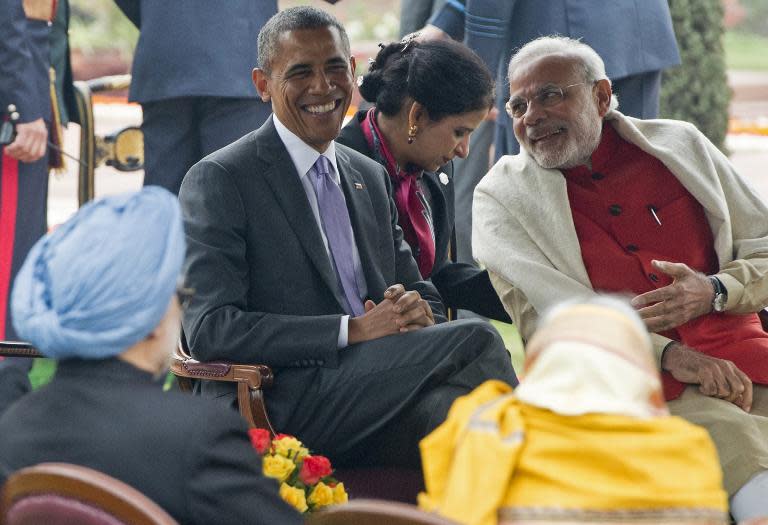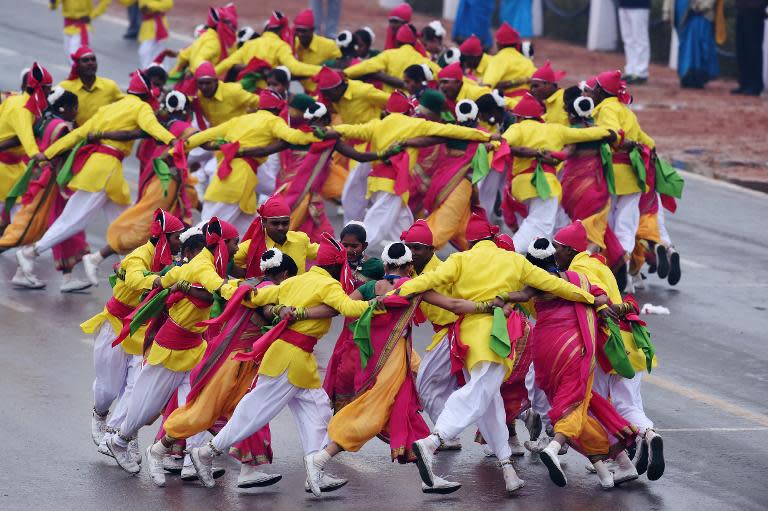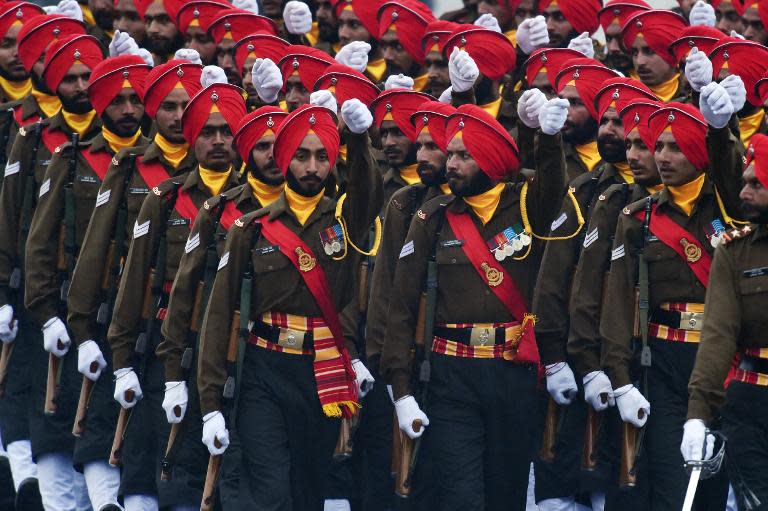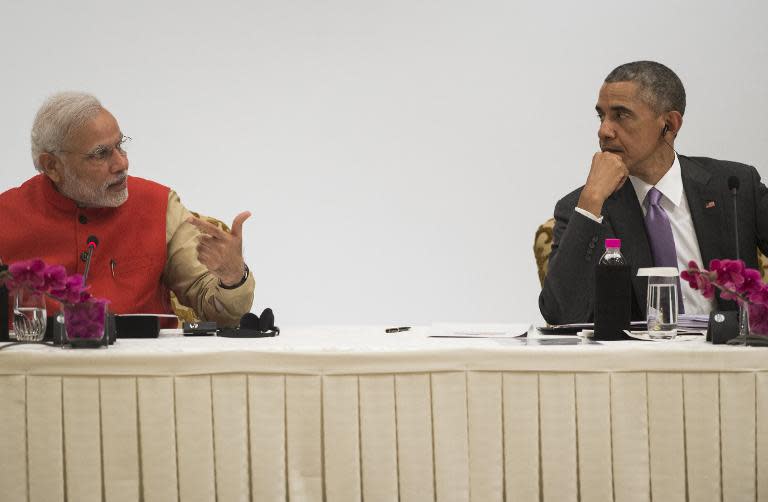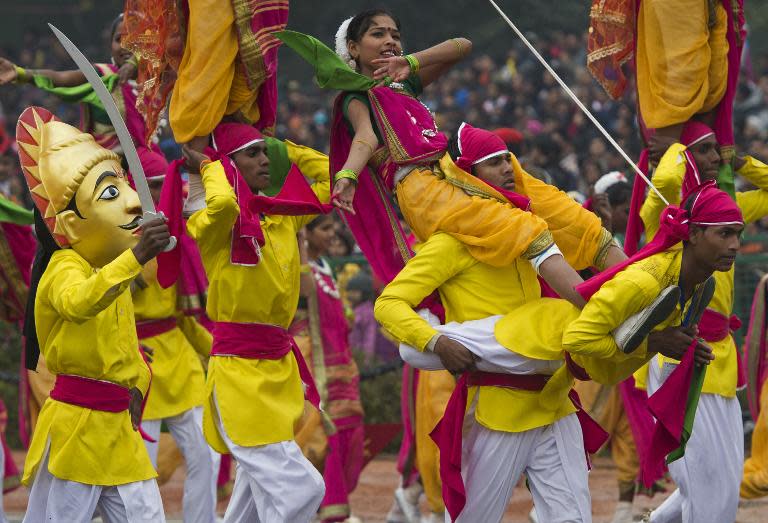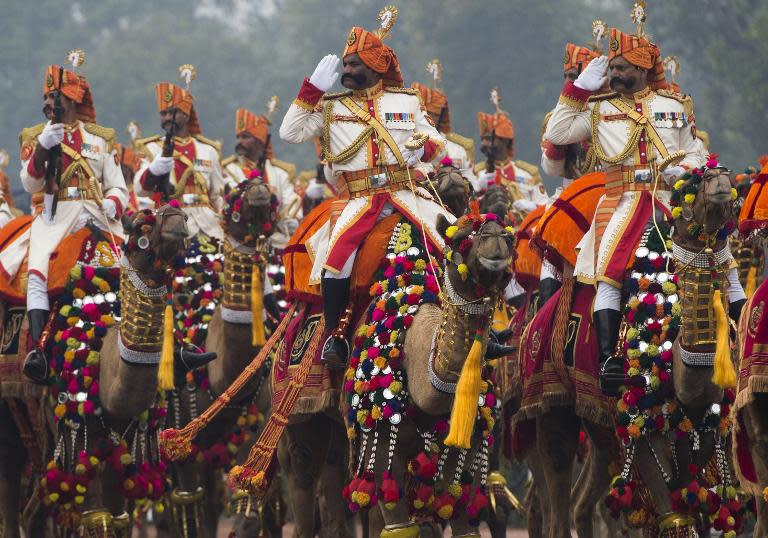Modi honours Obama as VIP guest, opens arms to US business
Narendra Modi honoured Barack Obama as his chief guest Monday at India's Republic Day parade and then rolled out the welcome mat to US businesses in a further warming of ties between the world's largest democracies. The rain which fell for much of the two-hour showcase of military might and cultural diversity failed to dampen the new sense of bonhomie, a day after the US president and Indian premier signed a friendship declaration. And the pair's joint appearance at an audience of business leaders further underlined their growing closeness that would have been unimaginable less than a year ago. Thousands of spectators cheered Obama and Modi as they arrived together at the start of the parade in New Delhi, which marks the birth of modern India and included everything from tanks and state-of-the-art weaponry to camels and traditional dancers. The invitation to the parade is one of the biggest honours the country can bestow on a foreign leader and underscores the increasing warmth between Obama and Modi, who was persona non grata in Washington for years. The leaders smiled and chatted as they watched from behind a bulletproof glass screen, Modi sporting a green and orange turban with a pink circular plume that rivalled the spectacular military headgear on display. - Wowed by stuntmen - Obama gave a thumbs-up as stunt-riders on motorbikes formed their trademark human pyramid before the grand finale of the event, a fly-past by Indian fighter jets. The display of military might came a day after Obama and Modi renewed a defence cooperation agreement, with the United States and India both seeking a counterbalance to a rising China. Much of the hardware on display was Russian-made, a reminder that despite the growing closeness of the world's two largest democracies, India still has strong defence ties with Moscow. The mounted Border Security Force on their brightly-decorated camels, a traditional highlight, drew loud cheers from spectators who were out in force. Obama's presence represented a remarkable turnaround in his relationship with India's new leader, who was effectively blacklisted by Washington until last February over communal riots in his home state of Gujarat in 2002 when Modi was chief minister. Obama began his visit Sunday with a bear hug from Modi, later saying their new "friendship" reflected a natural affinity between the two countries. Roads were closed around the area, which was declared a no-fly zone, and snipers were positioned on rooftops along the route, where 15,000 new CCTV cameras had been installed. The two leaders then made a joint appearance before a select audience of business leaders from both countries, where Modi vowed to banish India's reputation as a tough place to do business. As he promised a more "competitive" tax regime, Modi also pledged to address concerns about intellectual property that have long irked potential investors in Asia's third-largest economy. Obama hailed the new change in tone at the top of "India Inc" but said there were still "too many obstacles" for businesses wanting to break into the vast market. Under the previous left-leaning Congress government, investors frequently complained about a hostile business climate in India, frustrated by bureaucracy and corruption. In the last World Bank rankings on the ease of doing business rankings, India placed 142nd out of 189 countries. - 'Easy for business' - But in his speech, the right-wing prime minister said he aimed to have his country up in the top 50 and promised his audience that things would change drastically. "You will find an environment that is not only open, but also welcoming," he said in the address to executives including PepsiCo chairman Indra Nooyi and MasterCard president Ajay Banga. "We will guide you and walk with you in your projects. "You will find a climate that encourages investment and rewards enterprise. It will nurture innovation and protect your intellectual property. "It will make it easy to do business," said Modi, who was elected last May after promising to transform the Indian economy. Modi sees attracting more foreign investment as key to putting India on the path to sustainable growth and has been extensively promoting a "Make in India" campaign designed to turn the country into a manufacturing hub.

